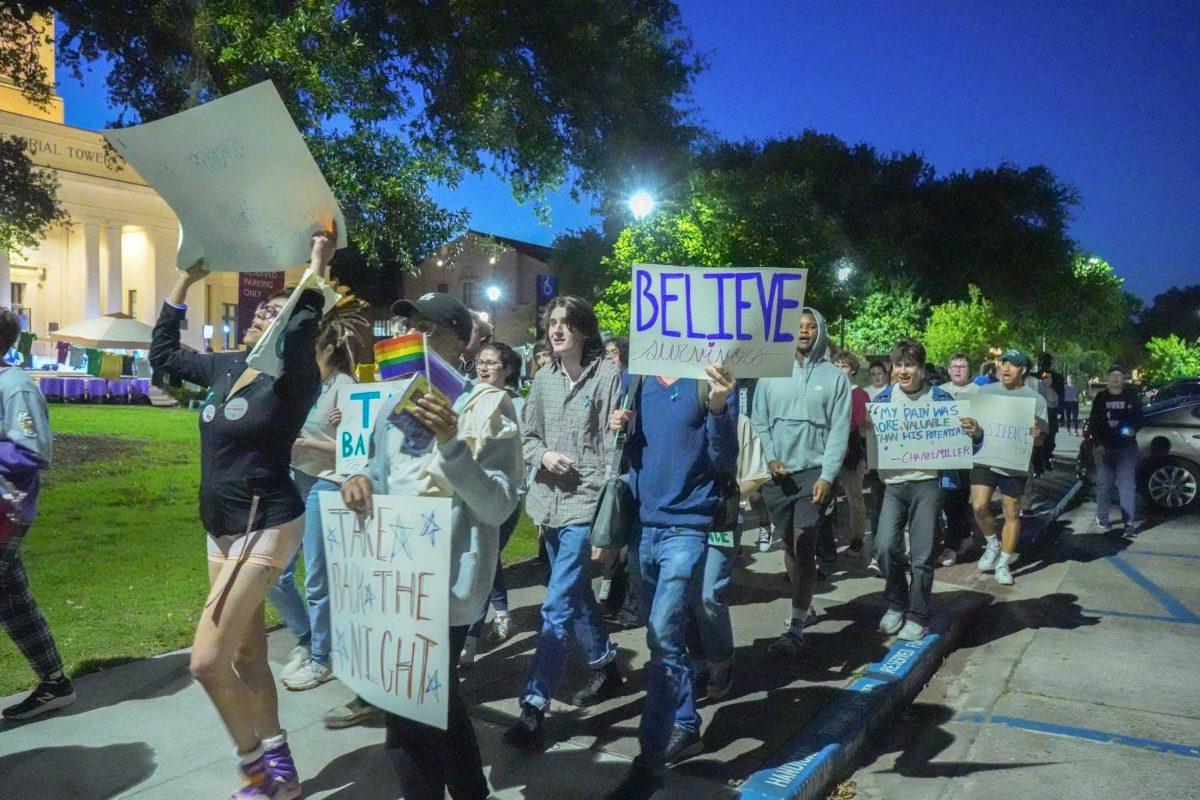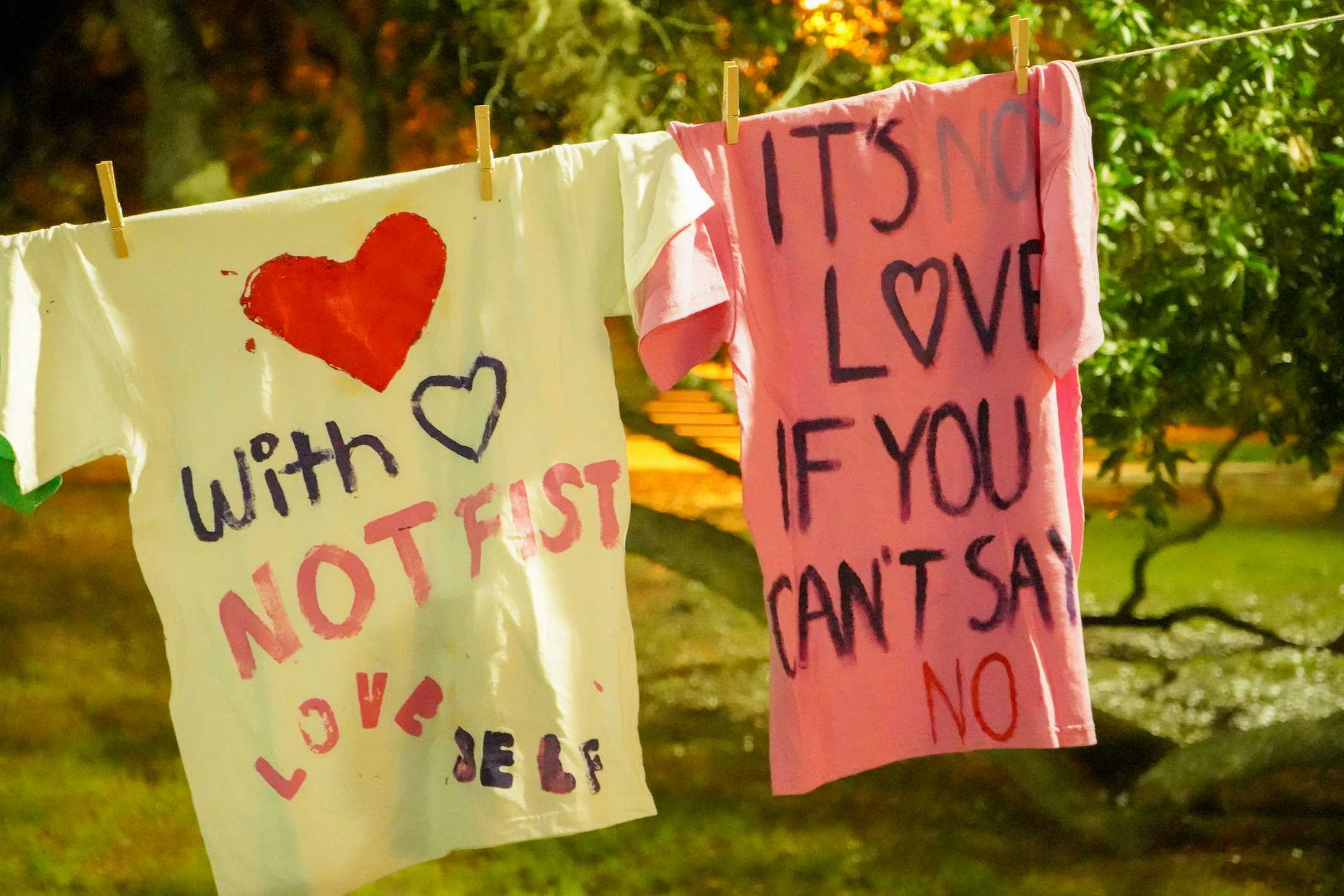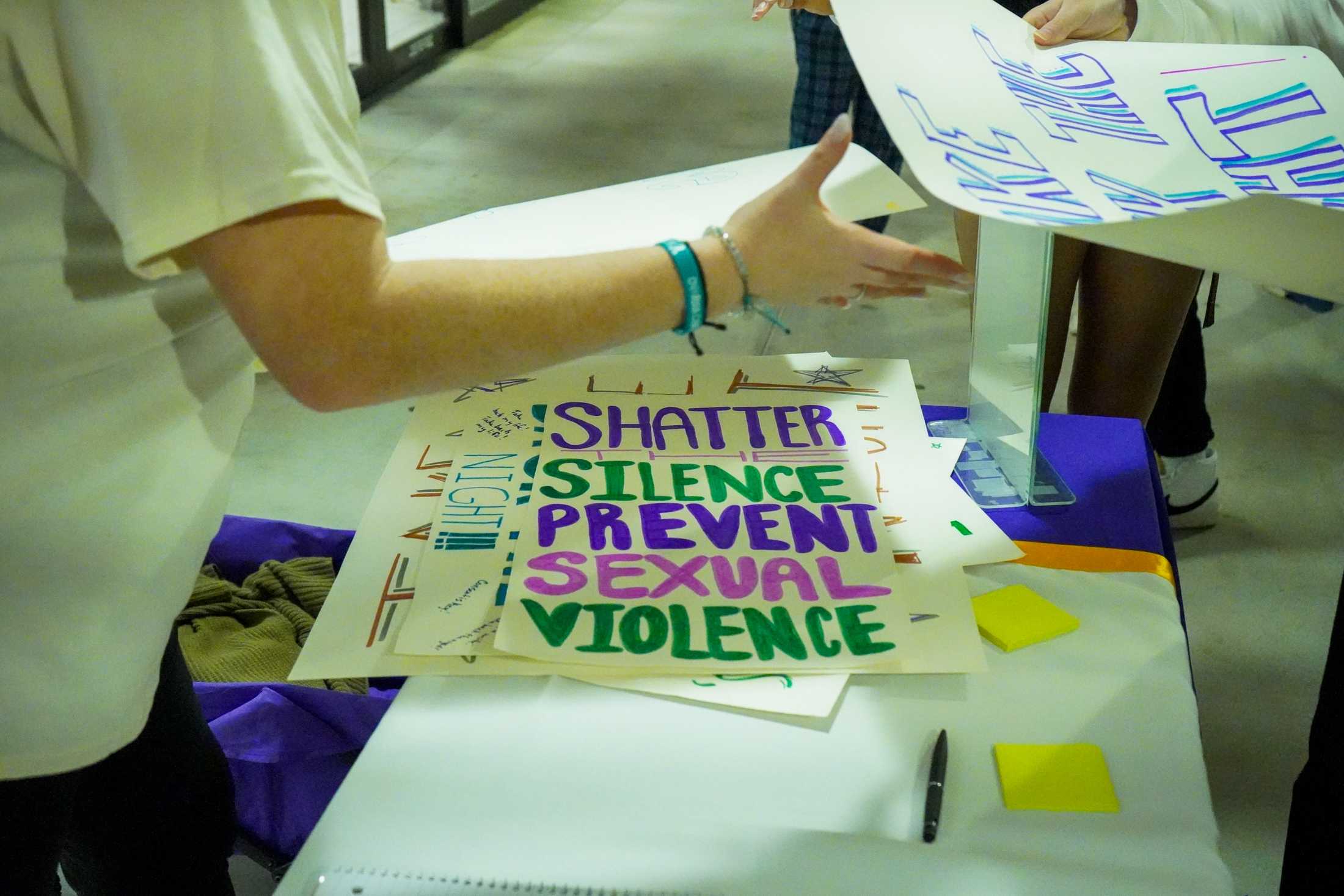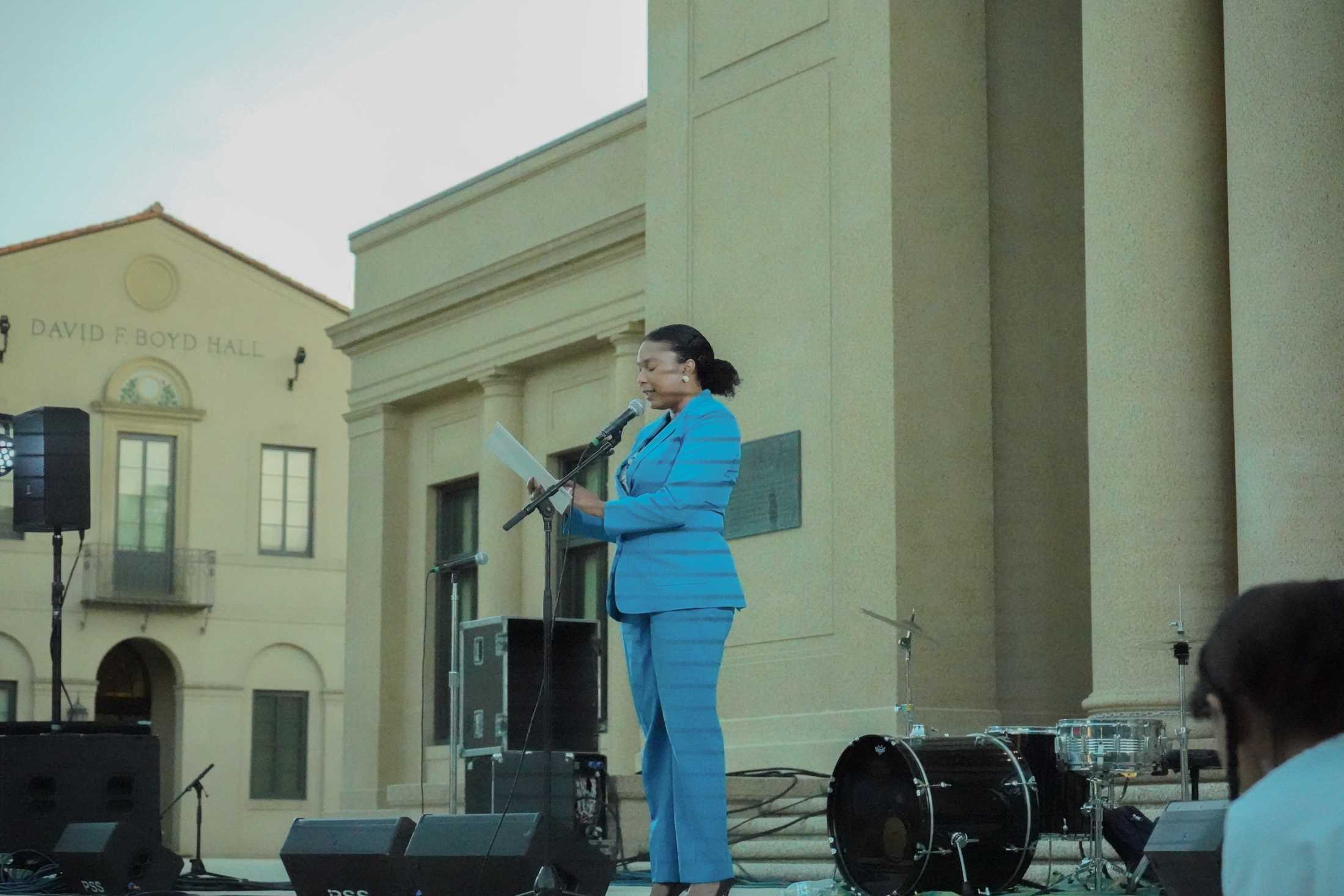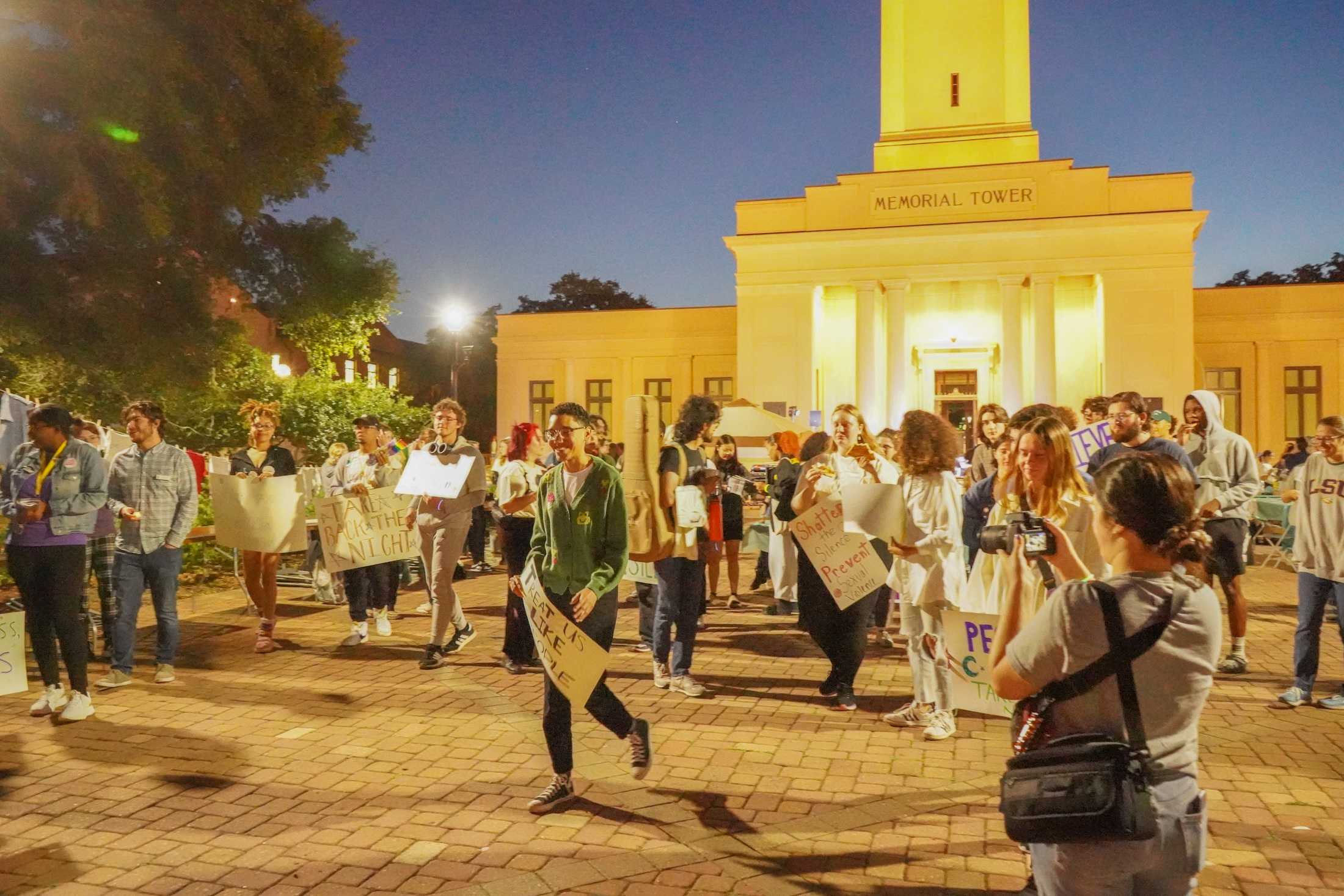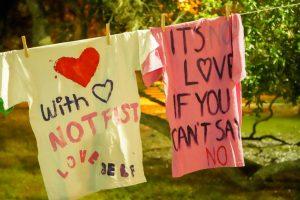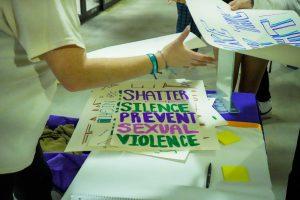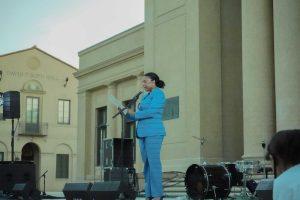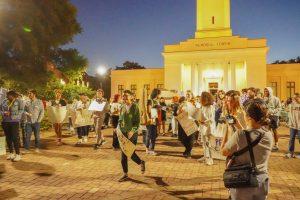For the first time since the start of the COVID-19 pandemic, the LSU and Baton Rouge community came together on Monday for Take Back the Night, an event aimed at raising awareness about safety issues and shattering the silence around sexual violence.
Take Back the Night is the oldest worldwide movement to stand against sexual violence, according to the Take Back the Night Foundation, and events are held around the world. This year’s event at LSU was hosted by Feminists in Action and featured over 15 campus and state organizations.
LSU students have participated in Take Back the Night for more than 35 years, with The Women’s Center hosting in previous years.
Attendees could participate in a resource fair, a speak out for survivors of sexual violence to share their experiences, a candlelight vigil and a march for empowerment around campus.
Layla Harmon, secretary of FIA, broke down the goals of Take Back the Night into three main areas.
“First is to provide a supportive space for survivors,” Harmon said. “Second is to raise awareness about sexual violence in our communities and on college campuses, because this is not just an LSU problem, it happens everywhere … Third is to be more proactive rather than reactive when addressing sexual assault.
“Our slogan for the event is ‘Shatter the silence, prevent sexual violence,’” Harmon said. “Because even if you’re not a survivor of sexual assault or you don’t know [survivors of sexual assault], it’s still important to come out because more than likely somebody that you know of has experienced sexual violence.”
Throughout the evening, state, community and campus leaders made calls to action against violence and sexual assault.
“It is important not just for women, but for everyone to know where you’re going, how you’re getting there and always have an exit strategy,” said Paul Rice, the father of Allison Rice, a 21-year-old LSU student who was killed on Government Street in September 2022. “The predators are out there. It doesn’t matter how comfortable you are with where you are going, the reality is it is not safe to travel alone in this community anymore. We’ve seen it with Allie. We recently saw it with Madison Brooks.”
In the tabling area, organizations offered information on how to approach sexual violence, with resources including pamphlets, helplines and other materials offered to help attendees learn what they should do if they encounter traumatic situations.
“You never know when it’s going to happen to you, so you always want to stay prepared. If anything does happen, it’s good to stay ready and stay in the know of what’s going on,” said Halle Roach, a mechanical engineering sophomore. “This is a very big issue on college campuses, so it’s very important for people, especially women, to know these resources are available for them. Even men can come out here and see that there are resources for them too.”
The Student Health Center’s Lighthouse Program, which provides free, confidential support to sexual assault survivors, educated students on the resources they offer.
“Being knowledgeable in the resources and being able to refer a friend or peer to the resources here is the next step to making sure that we’re creating a safe space for everyone,” said Victoria Polk, a coordinator of The Lighthouse Program.
Renee Antoine, executive director of The Governor’s Office on Women’s Policy, described domestic and sexual violence as “…One of the most pervasive violations of human rights of the world, one of the least prosecuted crimes and one of the greatest threats to lasting peace and development.”
Antoine said the OWP will continue to fight against sexual violence so survivors have access to safety, resources and legal protections.
Leslie Chambers, assistant chief administrative officer for East Baton Rouge Parish Mayor-President Sharon Weston Broome, spoke about the importance of survivors sharing their stories.
“I want to encourage everyone here to remember that their voices matter,” Chambers said. “Your voices have always mattered, whether or not an incident has occurred, or whether or not you know someone that has gone through a traumatic experience.”
During the survivor speak out, representatives shared stories about personal encounters with sexual violence or about their loved ones’ experiences.
Prince Makhail, a business marketing graduate student, shared his mother’s sexual assault story and how it impacted him throughout his life.
“The vulnerability it took for my mom to look at me in my face as a little boy and tell me something that truly affected her upbringing, her childhood, hurt me,” Makhail said. “We must speak up. Vulnerability is power. Vulnerability is strength. We must stand together … We cannot keep this to ourselves.”
Speakers also read anonymous stories submitted by survivors.
“I share my story to prove to you that there is light at the end of the tunnel,” an anonymous survivor wrote. “You can survive it. Even if the people who are harming us the most are the people, we love the most, we never deserve it. When your heart is so full and open it’s so easy to mistake abuse for love. But no one who loves us would truly use our love to abuse us. Love is respect and our consent is valuable.”



